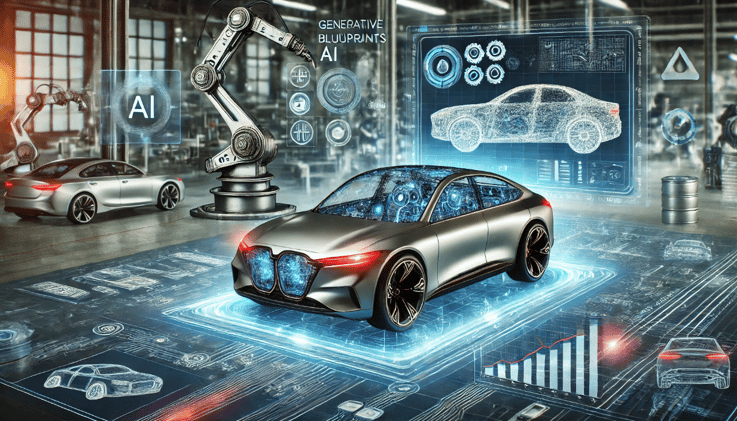Generative AI is rapidly transforming the automotive industry, pushing the boundaries of innovation and propelling carmakers towards a new era of technological advancements. This cutting-edge technology leverages advanced algorithms to streamline processes, create innovative solutions, and redefine how vehicle design, manufacturing, and customer experiences are approached.
A Growing Trend in Automotive Design
Generative AI is emerging as a key driver of innovation in automotive design. By allowing engineers to quickly explore multiple design variations, the technology optimizes vehicle aesthetics and performance attributes. According to a recent PYMNTS Intelligence report, ‘How Generative AI Is Boosting Innovation for Carmakers and Drivers,’ the impact of generative AI on the automotive sector is significant, highlighting both advancements and challenges such as skill shortages and ethical concerns.
The Market Potential of Generative AI in Automotive
The market for generative AI in the automotive sector is projected to grow from $335 million in 2023 to $2.6 billion by 2033, with a compound annual growth rate (CAGR) of 23%. This reflects a strong commitment from research and development teams, with nearly 70% of decision-makers prioritizing AI adoption.
Benefits of Integrating Generative AI into Automotive Operations
The integration of generative AI into automotive operations is expected to bring numerous benefits, including:
- Increased Productivity: Automating design iterations and virtual testing enables carmakers to accelerate product development while meeting regulatory standards more effectively.
- Improved Efficiency: Generative AI optimizes processes, reducing the time and resources required for tasks such as test vector generation and reporting.
- Enhanced Customer Experience: Personalized in-car experiences, anticipating driver needs and enhancing user engagement, set a new standard for automotive innovation.
Examples of Generative AI in Action
Several carmakers are already leveraging generative AI to transform the automotive industry. For instance:
- General Motors (GM) is using Microsoft Azure and OpenAI technologies to develop an AI-powered chatbot that assists drivers with real-time vehicle issues.
- Audi and Stellantis are working with Cerence to integrate AI-driven conversational interfaces across their product lineups.
Challenges to Generative AI Adoption
Despite its potential, the widespread adoption of generative AI in the automotive industry faces several hurdles. The most significant challenges include:
- Skill Shortage: A lack of skilled professionals with expertise in both AI and automotive engineering hinders the implementation of generative AI.
- Technical and Ethical Concerns: Integrating AI with legacy systems requires technological and organizational shifts, raising concerns about data privacy, security, and regulatory compliance.
The Future of Generative AI in Automotive
Generative AI is poised to redefine vehicle design, manufacturing, and the in-car experience. To realize its full potential, carmakers must address challenges related to technical integration, workforce skills, and data privacy.
Key Takeaways:
- The automotive industry is expected to see significant growth in generative AI adoption, with 75% of stakeholders planning to integrate it into their operations this year.
- Generative AI optimizes vehicle design and performance attributes, personalizing in-car experiences and enhancing user engagement.
- Challenges such as skill shortages, technical integration, and data privacy must be addressed to realize the full potential of generative AI.
As carmakers continue to invest in generative AI, the automotive industry is set to achieve new levels of innovation, personalization, and efficiency.




